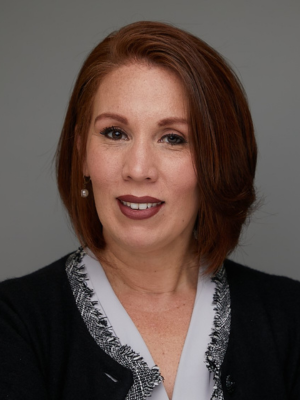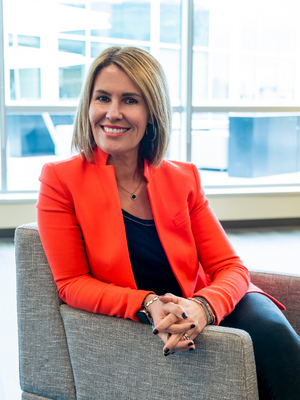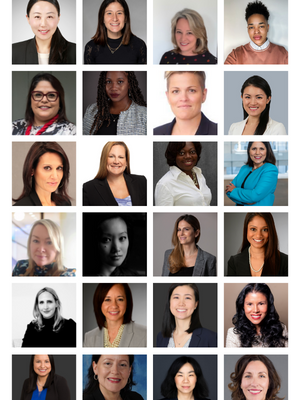 This week, we continue with more words of wisdom from women leaders we’ve interviewed throughout 2023. Through the months, we’ve spoken to women who are impacting change, shaking up leadership and transforming perspectives. We’ve talked to women in top leadership positions and founders introducing their own new visions into the world.
This week, we continue with more words of wisdom from women leaders we’ve interviewed throughout 2023. Through the months, we’ve spoken to women who are impacting change, shaking up leadership and transforming perspectives. We’ve talked to women in top leadership positions and founders introducing their own new visions into the world.
Please make sure to check out Part 1 of this year round-up! Below we share more words of wisdom and inspiration. Thank you each for the gift of your energy, time and insight!
“I feel strongly about focusing on doing right by others. Ambition goes awry if you don’t have respect for individuals, and if you don’t think about what motivates them. I want to understand what’s important to the people with whom I work. I focus on treating individuals how I would want to be treated – including respecting their differences, talents and expertise.” – Alexandra Tyler: Managing Director, Digital Transformation Leader, Accenture Song
“Some people believe that passion will help you find what you want to do. I don’t really believe in that. I believe that you have to know what you want. Knowing what you want and doing something actionable towards it will bring the passion.” – Nadiya Kreynin: Chief Executive Officer, Forte DGTL and Chief Operations Office, Forte Group
“As leaders, we have to be willing to hear some difficult things and have better self-awareness, which isn’t always easy. If we do, we can become better leaders by being open-minded to making changes based on what people are telling us. This has enabled me to take pride in the leader that I’ve become.” – Tiffany Fleming: Vice President, Client Onboarding & Trading Documentation, PGIM Fixed Income
“I subscribe to the theory that the best leaders – not only with words but through their actions – encourage and inspire others to achieve their best. That is how some of the most influential leaders have impacted me in my career, and I aspire to have the same impact on others.” – LaShonda Fuselier: Head of Multi-National Corporations Subsidiary Coverage, Corporate and Investment Banking, Wells Fargo
“If you have the right skills and are prepared, don’t be afraid when the opportunity comes to you. No one can tell you it’s not possible… If you have the passion for the work, there’s always a way. Pick the right field, pick the right industry, pick the right job that you have passion for.” – Wanda Woo: Partner, Capital Markets, Shearman & Sterling LLC (Hong Kong)
“There’s an obsession with very young entrepreneurs, like Mark Zuckerberg, who quit college and go off to start their companies. But I think building a new scalable business is really, really hard. I don’t think I could have done it when I was in my 20s. There’s a lot of evidence that the most successful entrepreneurs are people who start their companies in their late 30s and early 40s. I started when I was 37. I think that coming to entrepreneurship a bit later, after I had done a lot of different things, made me much more prepared for the resilience and patience that was required and is still required for what we’re building.” – Sylvana Quader Sinha, Founder and CEO of Praava Health
“There’s power in the pivot. You can’t get stuck. You don’t want to plateau. You always want to stay fresh and connected. Pivoting is inevitable. You can’t not pivot, and if you feel like it’s not working, that’s your sign. For every single problem, there is a solution. You just have to spend enough time to let it present itself. Sometimes, the solution is a tweak. But recognize where you are – and be willing to turn where you want to go, in whatever you are doing, whether it’s a 180 or a few degrees.” –Sherin Dawud: CEO at Nura Co. and Co-Founder at Power Pump Girls
“If we’re having a discussion, my focus is on the topic. I’m assuming that we’re both focusing on the content. But, with time, I’ve learned that many people focus on the relationship, and may sacrifice items in the topic to protect the relationship. For example, they may not contradict. They may not bring up their ideas because they may be different from what somebody else in a more powerful position may be saying. They may feel vulnerable in expressing something. I make sure to say upfront I value the discussion of viewpoints and being contradicted.” – Liora Haymann: Managing Director, OBM International
“How constructively you approach anything is going to be the difference-maker for you and for all those who work with you and for you. When you hit those roadblocks and it’s tempting to pivot to feeling captive or negative, I force myself to remember that the only way out is forward. Approach issues constructively and that will help you rise above the challenge or circumstance, to focus on a solution.” –Vanessa Rodriguez: Head of Community Lending & Investment, Commercial Real Estate, Wells Fargo
“When you have different cultures, there’s a lot of things that can be misinterpreted. For example, I use my hands a lot and I might find certain hand movements mean something else in another culture that I did not intend. One thing that is helpful that I’ve learned, and work with my leadership team on, is to start with your intent. Because there’s a lot about communication that doesn’t land the way you want to say it. Often, simply leading with your intent before you even start the conversation can change the ability to have difficult conversations.” – Dr. Sheena Menezes: Co-Founder and CEO, Simple HealthKit Inc
“When you’re junior and hungry, you work late, so you can take it all on. However, I think it serves your growth to start setting boundaries as you advance. I don’t have children yet, but I am still going to sign off at a reasonable time and have a nice dinner with my husband. You need to set boundaries, and sometimes, it means saying no or that you’ll look into something at a later time – as your schedule and workload permits.” – Alison Taylor: Investment Vice President, PGIM Real Estate
“In my opinion, being a true leader is not just about managing up anymore or trying to get the next job. I genuinely think I should be judged based on the teams I build and how I encourage and empower them…When I was progressing through my career, a lot of it was about me and developing my technical skill set: I’ve got to manage up, I’ve got to manage sideways. I’ve got to manage down. All of those facets still exist. But that’s the big leadership pivot people don’t realize: You don’t have all the answers. You’re there to listen. You’re there to serve and support others to be successful.” – Lola Ninonuevo: International Chief Operating Officer, Wells Fargo
“So many big decisions have been made by people who were all thinking alike. I feel it’s critical to have different perspectives on solving problems, especially big problems. More than one thing can be true. I try to remind people that it doesn’t have to be either/or. It can be and. I like to consider how we can meld ideas to come up with a good solution. If there are two opposing ideas, rarely is one or both entirely wrong.” – Rhonda Johnson: CEO, Different Like You, Inc & Acting Deputy Director, Consumer Financial Protection Bureau
“Don’t be afraid to take the road less traveled, because as you do, you will find new horizons that will take you to the next level. Finding something you’re passionate about is important because you’ll do better than if you’re forcing yourself into a career or role that isn’t the best fit for you.” – Helen Chang: Managing Director, Head of Asia Pacific ex Japan, Client Advisory Group, PGIM
“It’s a trap to believe there is a certain way we are supposed to be to be successful. For example, we equate leader mentality to an ‘early bird gets the worm’ mentality. I’m a night owl. My hours are more bartender than typical Corporate America. You’re supposed to wear heels. I can’t wear heels. You’re supposed to not talk too much about your kids. That’s the most important thing in my life! The more you can just be who you are, the more powerful that is. Whatever it is that you have that’s different, it can be something that truly makes you unique, but you can’t be scared of it. You have to let that difference shine and that takes courage and vulnerability.” – Lindsey Roy: Hallmark Cards, SVP Strategy & Brand & Motivational Speaker
Interviewed by Aimee Hansen










